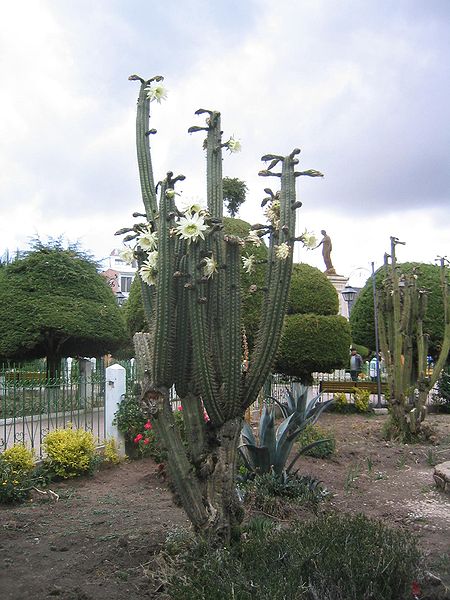Pharmacognosy is the study of crude drugs obtained from medicinal plants, animals, fungi, and other natural sources. The American Society of Pharmacognosy defines pharmacognosy as "the study of the physical, chemical, biochemical, and biological properties of drugs, drug substances, or potential drugs or drug substances of natural origin as well as the search for new drugs from natural sources".
Dioscorides’ Materia Medica, c. 1334 copy in Arabic, describes medicinal features of various plants.
The carotenoids in primrose produce bright red, yellow and orange shades.
A drug is any chemical substance that when consumed causes a change in an organism's physiology, including its psychology, if applicable. Drugs are typically distinguished from food and other substances that provide nutritional support. Consumption of drugs can be via inhalation, injection, smoking, ingestion, absorption via a patch on the skin, suppository, or dissolution under the tongue.
Uncoated aspirin tablets, consisting of about 90% acetylsalicylic acid, along with a minor amount of inert fillers and binders. Aspirin is a pharmaceutical drug often used to treat pain, fever, and inflammation.
Nexium (Esomeprazole) is a proton-pump inhibitor. It is used to reduce the production of stomach acid.
An Amazonian shaman
San Pedro, a psychoactive cactus






